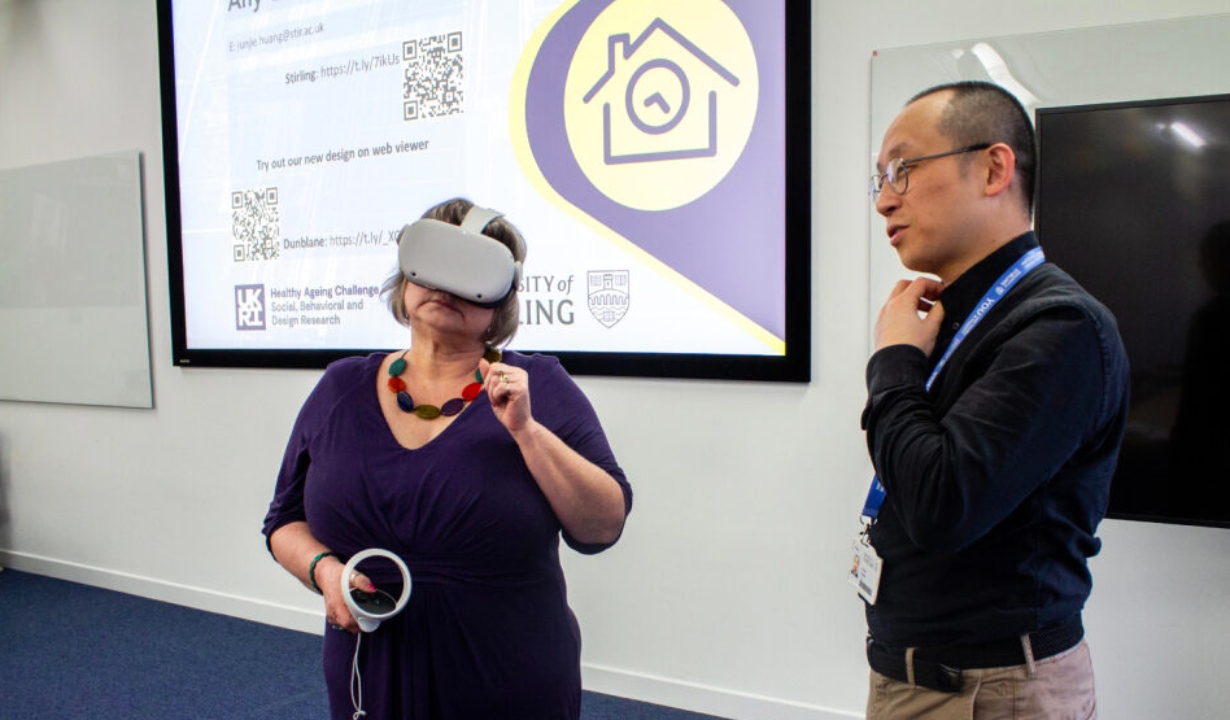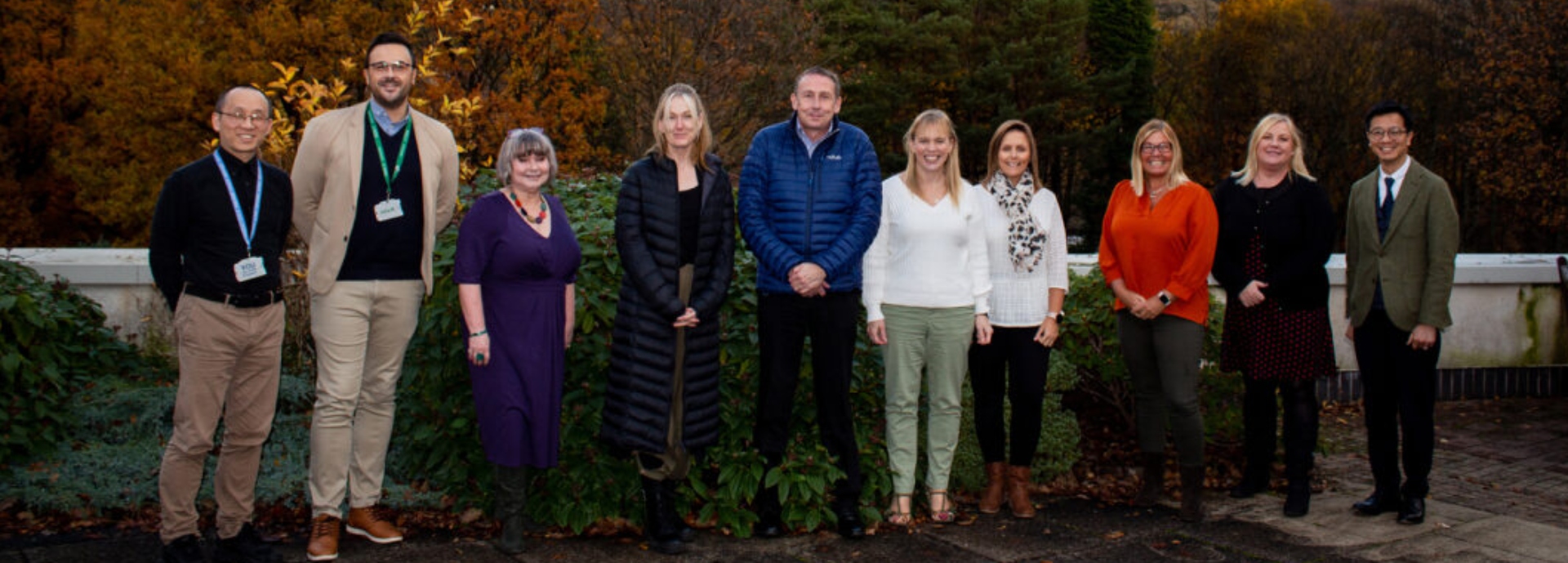Scottish Borders Council works with University of Stirling on dementia-friendly care village
Back to news
Members from Scottish Borders Council have visited University of Stirling dementia design experts to explore options for the region’s new Tweedbank care village.
Councillor Elaine Thornton-Nicol and other Council representatives met with staff from the University’s Dementia Services Development Centre (DSDC) to discuss dementia friendly design for the project, which aims to better support the changing needs of an ageing population.
During the visit, they and the DSDC team of architects, designers, and dementia specialists discussed staffing models and how research can inform the improvement of the village’s community care and services.
Tweedbank is one of two care villages currently under development, the second being in Hawick. Their focus, the Council writes on its website, is on “possibility rather than disability”. The DSDC has been a consultant on Tweedbank since the design concept phase.
Councillor Thornton-Nicol said: “The intention is to provide an innovative new model of residential care for people with complex needs, frailty and dementia. This means providing high-quality support through proactive intervention and preventative action. We are delighted to be working with the University of Stirling, a leader in the field of dementia, to help achieve this.”
Lesley Palmer, Chief Architect at the DSDC, said: “Our collaboration with the Scottish Borders Council exemplifies our shared commitment to improving the lives of people with dementia. We are all stakeholders in ageing, and as people live longer it is vitally important that we are ready to support them. The new care villages mark a significant step in our collective journey towards creating a more dementia friendly society.”
 Councillor Elaine Thornton-Nicol tries on a virtual reality headset as part of her visit to the University of Stirling. With her is Junjie Huang, Senior Design Consultant at DSDC.
Councillor Elaine Thornton-Nicol tries on a virtual reality headset as part of her visit to the University of Stirling. With her is Junjie Huang, Senior Design Consultant at DSDC.
Based at the University of Stirling, the DSDC acts as a knowledge broker, using research to inform practice, and practice to inform research. It is a world leader in dementia friendly design, which is seen as one of a set of non-pharmacological interventions for people with dementia.
Now widely recognised as a global health challenge, an estimated 50 million people live with dementia worldwide, with that number set to rise by 152 million by 2050. The World Health Organization (WHO) predicts that almost a quarter of the world's population will be over the age of 60 by 2050.

